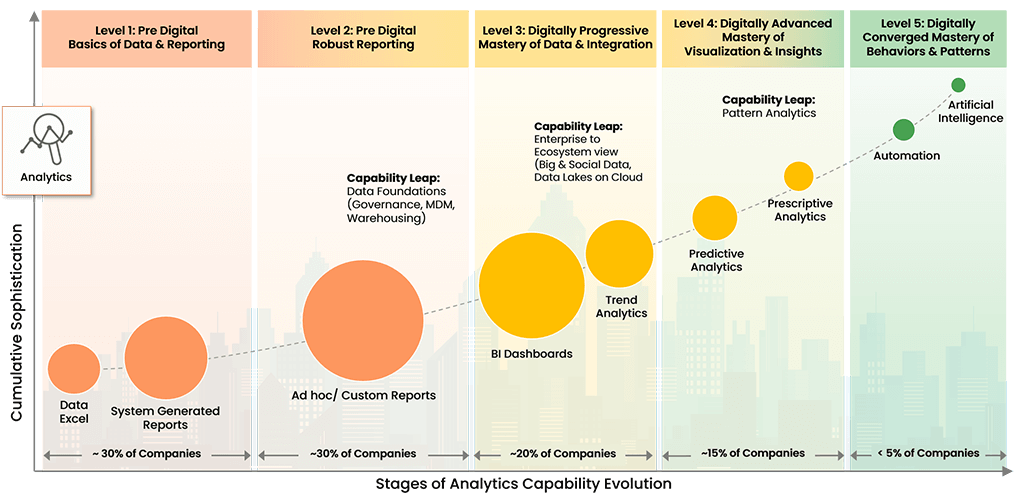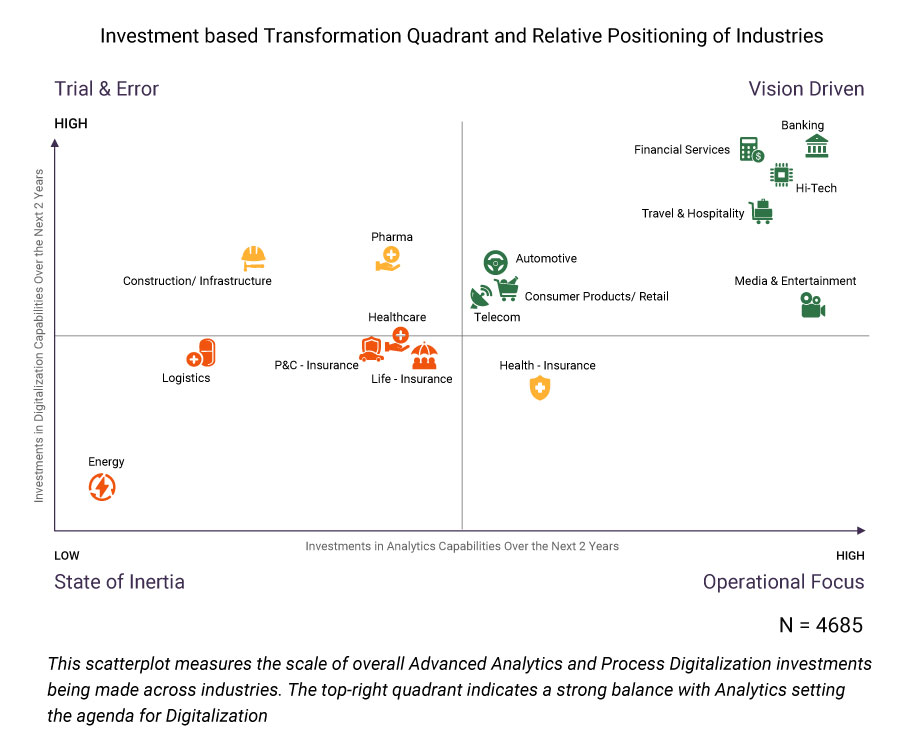Pharma: Three Areas for Progress Through Digitalization
As the industry begins leveraging analytics to guide decisions around new products and services,
digitalization can drive progress in three areas:
The first is through digitalizing research and development (R&D) processes using augmented and
virtual reality (AR and VR). AR and VR increase customer involvement and accelerate development by
augmenting human vision with 3D-generated computer overlays.
The second area is establishing real-time integration across the pharma ecosystem to accelerate
processes and increase the scope of data collection. One example is pharma integrating with contract
research organizations (CROs), tapping into data from healthcare providers and clinical studies to
reduce data collection times from months to mere minutes.
Finally, there is a growing opportunity in pharma to engage directly with consumers using digital
applications. These applications can provide knowledge and preventive care information to patients
and clinicians, thereby bolstering trust in the brand.
Only 7% of Companies Are Delivering on Their Transformational Initiatives
Our research has shown that 30% of companies will fail to survive this decade due to an inability to
evolve digitally. To address this negative trend, we have developed the Digital Enterprise Evolution Model™ (DEEM).
Digital Enterprise Evolution Model™

Copyright © 2022 Trianz
DEEM allows our clients to recognize digital evolution patterns, implement benchmarking and
prioritization strategies, and initiate application management protocols to satisfy stakeholder and
market requirements.
A Lack of Analytics Investment in Pharma
There is a growing sense of urgency around digital transformation from the result of continuous
action from pharma industry players. Still, many pharma companies are sub-optimally digitalizing
their operations. There are major changes that must be made to business models, portfolios, and
processes, requiring a modern, scalable, and efficient IT infrastructure foundation.
Our research demonstrates that how pharma is not investing aggressively enough in developing
analytics capabilities or cloud product-service foundations. If pharma companies wish to compete
with new biotech and biopharma startups, implementing and scaling IT infrastructures must be a top
priority.
Human Capital Management (HCM) Is Essential for Pharma Long-Term
Even as companies innovate and reinvent their product-service portfolios and processes, pharma is not
investing nearly enough in human capital management (HCM). Among all industries, pharma is in the
bottom ranks in terms of applying HCM
analytics, improving employee experiences (EXs), and acquiring new talent or upskilling
their workforce.
This coincides with a distinct lack of talent in the job market, making it difficult for pharma
companies to find new “digitally savvy” employees to support their digitalization initiatives. It is
critical for CEOs to realize the value of experienced employees, investing in training and
improvements to the EX to retain this talent. This is a key predictor of success with digital
transformation.
To emerge into the vision-driven quadrant, CEOs must benchmark their pharma operations, focusing on
product-service portfolios, prioritizing the value chain, and transforming talent through HCM
learning and development (L&D) initiatives.
Experience the Trianz Difference
Trianz enables digital transformations through effective strategies and excellence in
execution. Collaborating with business and technology leaders, we help formulate and
execute operational strategies to achieve intended business outcomes by bringing the
best of consulting, technology experiences and execution models.
Powered by knowledge, research, and perspectives, we enable clients to transform their
business ecosystems and achieve superior performance by leveraging infrastructure,
cloud, analytics, digital and security paradigms. Reach out to get in touch or learn more.



















